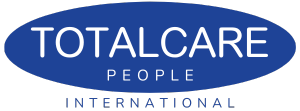
Get Your Payroll Right in 2024: What South African Businesses Need to Know
Ready to take your business to the next level in 2024?
Payroll compliance is the key to avoiding headaches and focusing on what truly matters—growing your business. Here’s everything you need to stay ahead.
Running a business in South Africa comes with its own set of challenges, and staying on top of payroll compliance in South Africa 2024 is one of them. With the latest updates to PAYE, UIF, and minimum wage laws, it’s crucial to ensure your payroll systems are up-to-date. But don’t worry, we’ve got you covered with everything you need to know to keep your business compliant and your employees happy.
1. PAYE (Pay As You Earn) Tax Adjustments: What’s New?
If you’re managing payroll, PAYE is one of those things you can’t afford to ignore. For 2024, there have been updates to the PAYE tax thresholds and tax tables. What does this mean for you? Essentially, employers need to update their payroll systems to reflect these changes so that the correct amount of tax is deducted from your employees’ paychecks.
And let’s not forget about UIF—still a mandatory 1% contribution from both the employer and employee. But here’s the kicker: you must ensure your contributions match the updated ceilings as stipulated by SARS. Getting this wrong could lead to non-compliance, and that’s a headache nobody wants!
2. National Minimum Wage: Don’t Get Caught Off Guard
The national minimum wage in South Africa isn’t just a number; it’s a moving target that gets reviewed every year. For 2024, the minimum wage has been increased, so if you haven’t already adjusted your payroll, now’s the time. Not only is this a legal requirement, but it’s also a great way to keep your employees motivated and fairly compensated.
3. Staying Compliant with Labour Laws: It’s More Than Just Paperwork
Compliance might sound like a boring term, but it’s your best friend when it comes to avoiding fines and legal trouble. The Basic Conditions of Employment Act (BCEA) and the Employment Equity Act (EEA) are key pieces of legislation you need to follow. From ensuring fair pay across different demographic groups to making sure your employees get the leave they’re entitled to, these laws are crucial for keeping your business on the right side of the law.
4. Employee Benefits and Contributions: What’s Changing?
Pension funds, provident funds, and medical aid contributions have all seen updates in 2024. Payroll systems must reflect these changes, especially when it comes to tax credits for medical aid contributions. This is one area where being proactive can save you a lot of trouble down the line.
5. Outsourcing Payroll: A Smart Move for Compliance
If the thought of keeping up with all these changes is making your head spin, you’re not alone. Outsourcing your payroll to a reputable service provider can be a game-changer. Not only do these providers stay on top of the latest tax laws and regulations, but they also offer advanced data security to protect sensitive employee information. In an age where cyber threats are on the rise, this added layer of security is something you can’t afford to ignore.
6. New Regulations and Increased Enforcement: Don’t Get Caught Off Guard
The South African Department of Labour is cracking down on non-compliance, particularly around minimum wage and UIF contributions. Regular audits are becoming more common, so it’s more important than ever to make sure your business is up-to-date with the latest regulations. Non-compliance can result in significant penalties, which could put a serious dent in your business.
Conclusion: Why Staying Compliant Matters
In 2024, payroll compliance in South Africa isn’t just about avoiding fines—it’s about running a smooth, efficient business where your employees are happy and your operations are legally sound. By staying updated on the latest regulations and considering outsourcing as a way to manage complexity, you’ll be well on your way to a successful year.